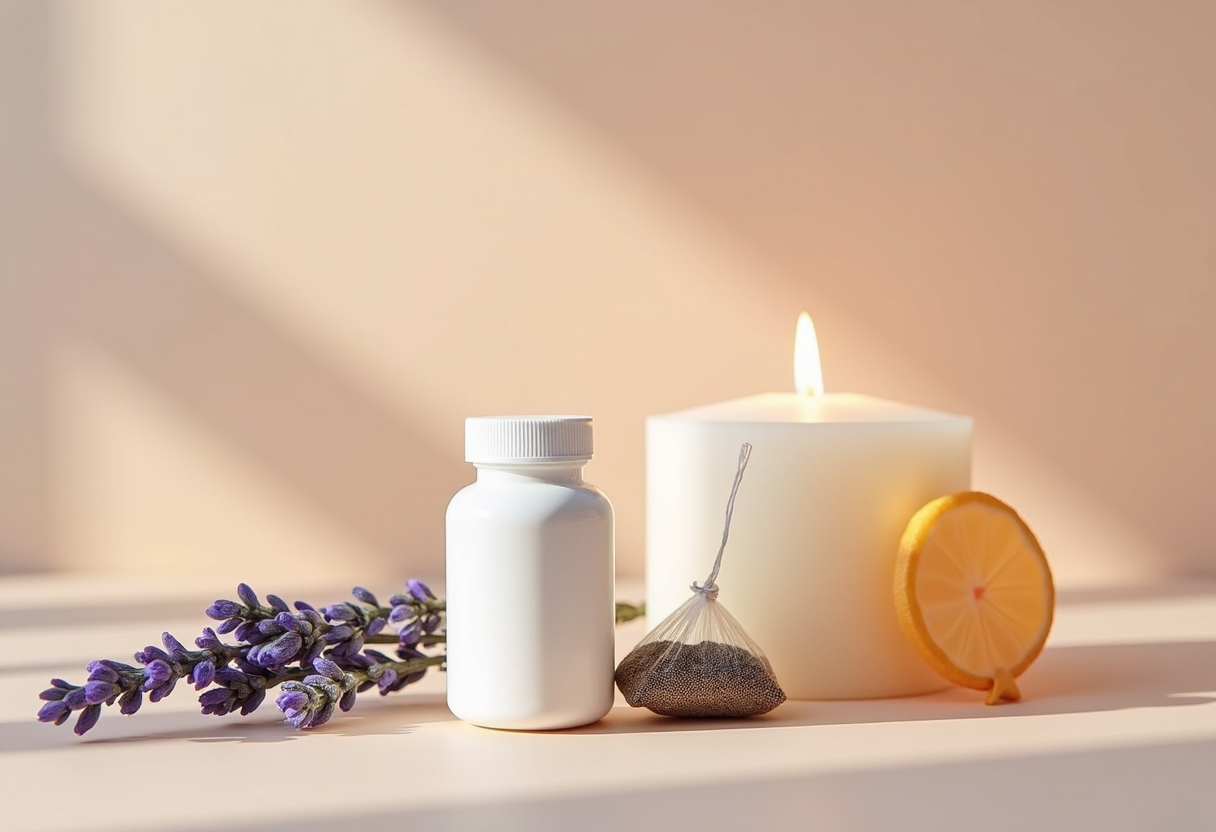Do you often find yourself tossing and turning, staring at the ceiling as the hours tick by? You’re not alone. Many people struggle with getting adequate, restful sleep, and understanding how to sleep better at night is a common goal. A good night’s sleep isn’t just about feeling rested; it’s fundamental to your overall health, mood, and productivity.
In this comprehensive guide, we’ll dive into practical, actionable strategies you can implement starting tonight to transform your sleep habits. From optimizing your environment to understanding the role of certain supplements, we’ll equip you with the knowledge to achieve the quality sleep you deserve and wake up feeling refreshed and energized.
Why Quality Sleep Matters for Your Health
Sleep is far more than just a period of inactivity; it’s a vital biological process during which your body repairs itself, consolidates memories, and regulates hormones. When you don’t get enough quality sleep, the effects can ripple across every aspect of your life. Physically, poor sleep can weaken your immune system, making you more susceptible to illness. It can also impact your metabolism, potentially leading to weight gain and an increased risk of chronic diseases like type 2 diabetes and heart disease.
Mentally and emotionally, chronic sleep deprivation can impair your cognitive function, affecting concentration, problem-solving skills, and decision-making. It can also exacerbate mood swings, increase irritability, and contribute to feelings of stress and anxiety. Prioritizing restful sleep is a powerful investment in your long-term health and well-being, helping you feel your best every single day.
Top Recommended Products for Better Sleep
While lifestyle changes are crucial, sometimes a little extra support can make a big difference. Many individuals find that natural sleep aids or supplements designed to support sleep or related health goals can help them achieve more consistent, restful nights.
- YU Sleep: If you’re looking for a natural boost to help you drift off, YU Sleep is specifically formulated as a sleep aid. It’s designed to support your body’s natural sleep cycles, helping you fall asleep faster and stay asleep longer, promoting a deeper, more restorative rest. This can be a great option for those seeking the best natural sleep supplements to enhance their nightly routine.
- SleepLean: For those who recognize the interconnectedness of sleep and weight management, SleepLean offers a unique approach. This product is formulated to support a healthy metabolism and weight loss while you sleep, addressing the “sleep and weight loss connection.” It’s an excellent choice if you’re aiming to improve your sleep quality while also working towards your weight management goals, leveraging your body’s nocturnal processes.

Actionable Steps for Improving Your Sleep Quality
Ready to take control of your sleep? Here are practical steps you can start implementing today to improve your sleep hygiene and achieve more restful nights:
- Establish a Consistent Sleep Schedule: Go to bed and wake up at the same time every day, even on weekends. This helps regulate your body’s internal clock, known as your circadian rhythm, making it easier to fall asleep and wake up naturally.
- Optimize Your Sleep Environment: Your bedroom should be a sanctuary for sleep. Ensure it’s dark, quiet, and cool. Blackout curtains can block light, earplugs can reduce noise, and keeping your thermostat between 60-67°F (15-19°C) is ideal for most people.
- Create a Relaxing Bedtime Routine: About an hour before bed, wind down with calming activities. This could include reading a book (not on a screen), taking a warm bath, listening to soothing music, or practicing gentle stretches or meditation. Signal to your body that it’s time to prepare for sleep.
- Limit Exposure to Screens Before Bed: The blue light emitted from smartphones, tablets, and computers can interfere with melatonin production, the hormone that regulates sleep. Aim to put away all electronic devices at least 30-60 minutes before you plan to sleep.
- Watch Your Diet and Drink Habits: Avoid heavy meals, caffeine, and alcohol close to bedtime. Caffeine can keep you awake for hours, and while alcohol might initially make you feel drowsy, it disrupts sleep cycles later in the night. Opt for a light snack if you’re hungry, and limit liquids to prevent nighttime bathroom trips.
- Incorporate Regular Physical Activity: Exercise can significantly improve sleep quality. However, time your workouts carefully; intense exercise too close to bedtime can be stimulating. Aim for moderate exercise during the day, preferably in the morning or early afternoon.
- Manage Stress Effectively: Stress and anxiety are major sleep disruptors. Incorporate stress-reduction techniques into your daily life, such as yoga, deep breathing exercises, mindfulness, or journaling. Addressing underlying stress can pave the way for a more peaceful night.
Common Mistakes to Avoid
Even with good intentions, it’s easy to fall into habits that sabotage your sleep. Here are a few common pitfalls to steer clear of:
- Sleeping in excessively on weekends: While tempting, this can throw off your internal clock, making it harder to sleep during the week.
- Consuming caffeine late in the day: Even an afternoon coffee can linger in your system and affect your ability to fall asleep.
- Using your bed for activities other than sleep: Working, eating, or watching TV in bed can make your brain associate your bedroom with alertness rather than rest.
- Ignoring persistent sleep problems: If you’ve tried various tips and still struggle, don’t hesitate to consult a healthcare professional.
- Taking long naps late in the day: Short power naps (20-30 minutes) can be beneficial, but long or late naps can interfere with nighttime sleep.
Conclusion & Your Path to Better Sleep
Achieving truly restful and restorative sleep is within your reach. By understanding the profound impact of quality sleep on your physical and mental health, and by implementing consistent, healthy sleep hygiene practices, you can significantly improve how to sleep better at night. Remember, it’s a journey, not a destination, and small, consistent changes can lead to remarkable results.
Start by establishing a routine, optimizing your sleep environment, and being mindful of what you consume and when. If you’re looking for additional support, consider natural sleep aids like YU Sleep or products that address the sleep-weight connection such as SleepLean. Prioritize your sleep, and watch as your energy, mood, and overall well-being flourish. Sweet dreams!

FAQs
Q1: How much sleep do adults really need?
A1: Most adults need between 7 to 9 hours of sleep per night for optimal health and functioning.
Q2: Can diet impact my ability to sleep better at night?
A2: Absolutely. Avoiding heavy, fatty meals, excessive caffeine, and alcohol close to bedtime can significantly improve your sleep quality. Opt for lighter meals and hydrating beverages earlier in the day.
Q3: Is it okay to nap during the day if I want to sleep better at night?
A3: Short power naps (20-30 minutes) in the early afternoon can be beneficial without disrupting nighttime sleep. However, long naps or napping too late in the day can make it harder to fall asleep at night.
Q4: How long does it take to see improvements after changing sleep habits?
A4: Consistency is key. You might start noticing small improvements within a few days, but significant changes and a fully regulated sleep cycle can take several weeks of consistent effort.
Q5: When should I consider seeking professional help for sleep issues?
A5: If you consistently struggle to sleep despite trying various self-help methods, or if your sleep problems are significantly impacting your daily life, mood, or health, it’s advisable to consult a doctor or a sleep specialist.



